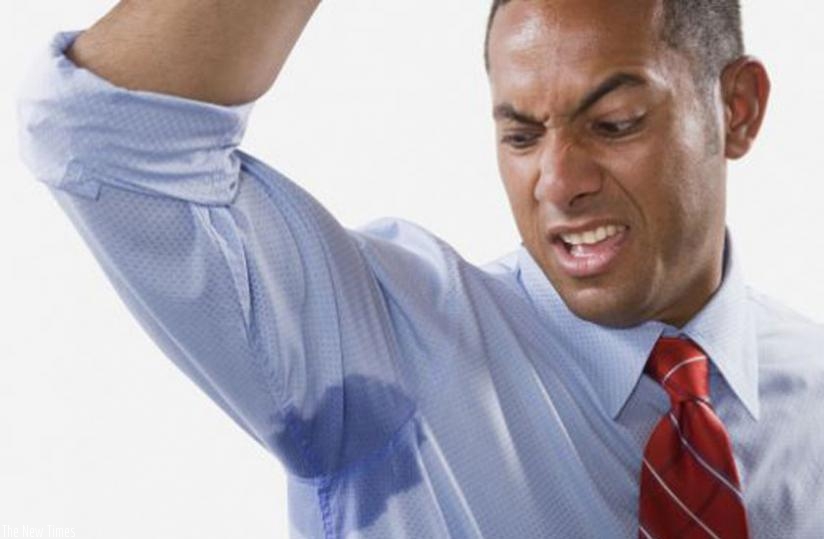Dear Doctor, I sweat on the nose and in the armpits quite a lot and it can be quite discomforting. What causes this and how best can I overcome it, if it’s possible. Eugene


Dear Doctor,
I sweat on the nose and in the armpits quite a lot and it can be quite discomforting. What causes this and how best can I overcome it, if it’s possible.
Eugene
Dear Eugene,
It seems you are suffering from hyperhidrosis - a condition of excess sweating. Sweat glands are small tubular structures located on the skin. Sweat helps in temperature regulation of the body and removes grime and waste products from the body. Maximum sweat glands are present in face, armpits, hands and feet. Hyperhidrosis can be due to genetic factors or without apparent reason (primary hyperhidrosis). It may also be due to some underlying cause (secondary hyperhidrosis).
A woman can have hyperhidrosis due to hormonal changes as during pregnancy and menopause. Excess sweating is one of the manifestations of anxiety, stress and overwork. It can be due to thyroid disorders, low blood glucose. Obese people tend to sweat more than lean persons. Addictions to abusive drugs, use of alcohol and withdrawal from alcohol can manifest as excess sweating. Drugs such as some antihypertensives or some antidepressants can cause excess sweating. It can be a feature of Parkinsonism. Among pathological conditions, any chronic infection like TB and HIV can cause sweating as one of the effects. High fever due to any reason can cause sweating, when it is reduced. One may have sweating in the night due to low blood glucose or even a coronary artery disease. It may be associated with certain blood cancers.
Whatever may be the reason for excess sweating, it is uncomfortable. It also leaves the affected individual smelling bad. Excess sweating causes dampness, which can lead to fungal infections, causing itching and skin rashes. Treatment of excess sweating consists of treating an underlying cause if identified. Adequate relaxation, avoiding use of alcohol or addictive substances are also useful. One should avoid use of nylon clothes and socks and preferably opt for cotton clothes. Nylon and polyester are synthetic fabrics that augment sweating.
Use of antiperspirants containing aluminium chloride helps in reducing sweating. If problem is persistent, anticholinergic tablets or injections are used that block sweating. Injection of botulinium toxin locally helps to block sweat glands and stop sweating. Lonotophoresis is passing low voltage electric current to block the sweat glands and thus excess sweat production. In severe cases, surgical ablation of sweat glands is considered.
Dr Rachna Pande is a specialist in internal medicine at Ruhengeri Hospital


